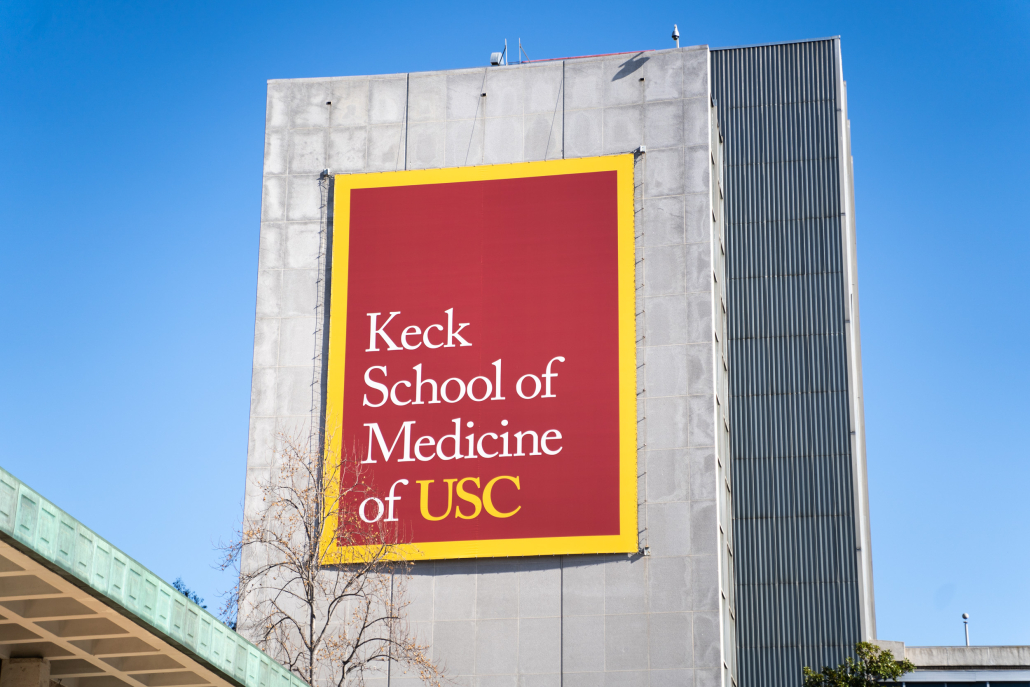Testing encouraged following Thanksgiving

Following students’ return from Thanksgiving break, early testing numbers indicate growing levels of coronavirus breakthrough cases within the community, Chief Health Officer Dr. Sarah Van Orman said in a student media briefing Tuesday. Thousands of students tested within the past two days, resulting in 32 positive cases and a positivity rate of approximately 0.4%.
The coronavirus testing appointment on MySHR portal crashed after students returned from holiday travels. USC requires students to receive weekly testing if fully vaccinated and every 72 hours if unvaccinated.
“We had about 20,000 to 30,000 people trying to log on within the same couple of hours to schedule their tests,” Van Orman said. “Unfortunately, our servers couldn’t handle it.”
In a communitywide email Tuesday, USC Student Health encouraged students, faculty and staff to drop off coronavirus saliva samples at campus testing sites to meet their weekly requirements. USC Care Crew workers were instructed to allow students to enter campus with temporary access for the next 24 hours for those unable to schedule a coronavirus test.
MySHR portal reopened after 6 p.m. Tuesday to schedule testing appointments, Van Orman said.
USC Student Health recommends students who traveled over Thanksgiving break to receive testing by Thursday or three to five days after arriving to Los Angeles. Nearly 10,000 students tested on Monday and an additional 10,000 students tested Tuesday, While post-Thanksgiving numbers are preliminary, Van Orman said rates appear significantly higher than previous weeks.
While Los Angeles remains a low prevalence area for the coronavirus, Van Orman said students could return from higher prevalence areas where they may have participated in large family gatherings and should remain alert for symptoms.
The World Health Organization classified the Omicron variant -as a “highly transmissible variant of concern,” although little is currently known about the variant. When looking at new variants, Van Orman said there are four main categories of importance — the effectiveness of available vaccines, the infectious nature of the variant, the severity of the disease and its susceptibility.
The newest variant is concerning because of the large amount of mutations, indicating that it could be less receptive to the vaccine. Van Orman said there was still no data to show that the vaccine is ineffective against the mutations in the Omicron variant.
The University tests its own saliva samples for the coronavirus, tracking variants and picking up suspect patterns in further tested samples, and will continue to monitor for any presence of the Omicron variant within the USC community. With little known about the variant, there is growing concern over a fifth coronavirus surge this winter and how Omicron could impact that, Van Orman said.
Student Health continues to recommend students receive their booster shot by making an appointment through their MySHR portals. The Lyon Center is also accepting walk-ins for booster shots, Van Orman said.
Influenza remains a growing concern for the community as cases appear at USC. Student Health encourages students to get vaccinated for the flu as soon as possible. The University has imposed a deadline of Dec. 17 for students to receive their flu vaccine or they will be unable to return to campus. Flu shot rates are currently close to 75% for students, faculty and staff, according to Van Orman.
For the upcoming semester, Van Orman said little coronavirus guideline changes are expected as cases remain an issue. Growing travel guidelines between countries for non-citizens, and contingency plans for international travel and quarantine might be put in place as the situation with the new variant continues to develop.

